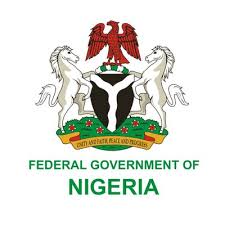|
Getting your Trinity Audio player ready...
|

In another attempt to end the inefficient operation of the electricity distribution chain and ownership crisis in many of the eleven Distribution Companies (DisCos), the government has decided to sell off its 40 per cent shares in the firms.
The planned sale of equities is also to generate funds for the Federal Government to part finance the N27.5 trillion 2024 Appropriation Bill.
The 40 per cent shares are co-owned by the Federal Government, the states and the local governments.
Also yesterday, Power Minister Adebayo Adelabu suggested the unbundling of the Transmission Company of Nigeria (TCN), the firm in charge of power transmission, but unable to wheel the bulk of generated electricity to the DisCos.
The inefficiency of the TCN is the reason the national grid regularly collapses.
It is also the reason the country is not able to make available more than 3,000mw out of the over 7,000mw generation capacity.
Explaining the plan and other activities by the BPE for other government-owned agencies, Okoh told reporters that the government’s shares in Eleme Petrochemicals Company Limited (EPCL), Nigeria Re-Insurance, NICON Insurance and Nigeria Machine Tools will also be put up for sale next year.
He said the BPE had sold 60 per cent of equity in the five enterprises to core investors, leaving the government with a 40 per cent balance.
Okoh said the privatisation programme has recorded significant mileage in the past six months from both foreign and local investors.
He said: “The reception of the ideology of privatisation is making more sense and gaining more ground under the current administration than the previous one.
“In the past six months, you can count the number of trips and visits the president has made to seek Foreign Direct Investments (FDI) and create an enabling environment for these investments to locate the opportunities locally.
“That in itself is huge because you are placing yourself in the competitive international capital market. There are huge opportunities for your investment now, so that is what is different.
“IPO through the capital market is a very credible strategy for us. Once we are able to resolve a few changes, especially ownership challenges with some Discos, we’ll sell.
“Once we resolve the 40 per cent ownership in the DisCcos, we also plan to take Eleme petrochemicals to the market.
“A lot of entities have been pencilled down for offer in the capital market including the Nigeria Machine Tool in Oshogbo all in next year.”
The BPE boss dismissed the rumours about plans to swap equity in the DisCos with the Niger Delta Power Holding Company (NDPHC) as untrue.
“I am not aware and the government hasn’t told me that there is a plan to swap equity between NDPHC power plants and the DisCos.
Okoh explained that Labour unions also seek to own shares in the 40 per cent.
He explained further that the original intention of the way the government privatised the DisCos partially was to list the 40 per cent still held by the government in the capital market.
With this, he said the government can democratise the ownership of the assets and make every interested citizen hold a stake in them.
Okoh extolled President Bola Ahmed Tinubu for his persistent search for FDI.
Okoh said although some privatised entities, such as the Steer in Bauchi, Volswagen, Reyland and Rolling Mills, have failed woefully, there are other shining examples of privatisation to boot.
To effectively undertake reforms of public enterprises, and conduct sales and post-privatisation assessment, the Federal Government allocated N2.4 billion expenditure to BPE in the 2024 fiscal budget.
Of the amount, the personnel cost is allocated N1.4 billion, salary and wage N824.8 million; allowance and social contributions will gulp N 575 million while training is allocated N80 million.
Also yesterday, Power Minister, Adebayo Adelabu, pushed for the unbundling of TCN in accordance with the Electricity Act 2023.
He spoke at the ministerial retreat on Integrated National Electricity Policy and Strategic Implementation Plan in Abuja.
The minister noted that the Nigerian Electricity Supply Industry (NESI) transmission sub-sector has been identified as a critical weak point in the value chain lately, stressing that the view is widely shared.
Adelabu vowed that “to align with the Electricity Act 2023 and the industry’s demands, it’s time to restructure the TCN into two entities: the Independent System Operator (ISO) and the Transmission Service Provider (TSP).”
He said the restructuring must synchronise with the evolving landscape of state electricity markets, addressing calls for the decentralisation of the national grid into regional grids interconnected by a new higher voltage national or super-grid.
The minister urged the stakeholders to imagine whether the government should directly provide electricity nationwide or rather facilitate its provision.
He tasked them to draw comparisons between China’s centralised model and the US’s diverse access models.


